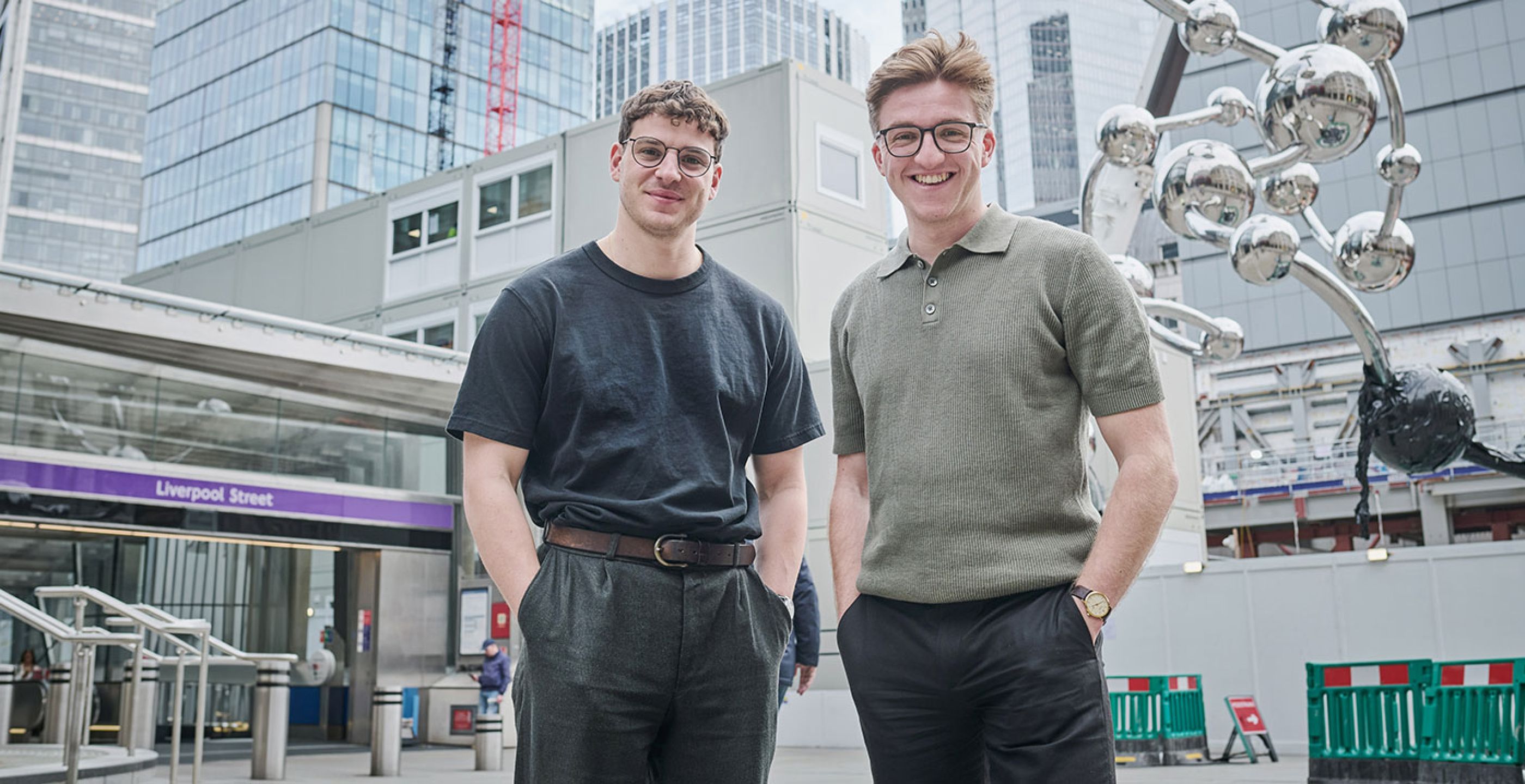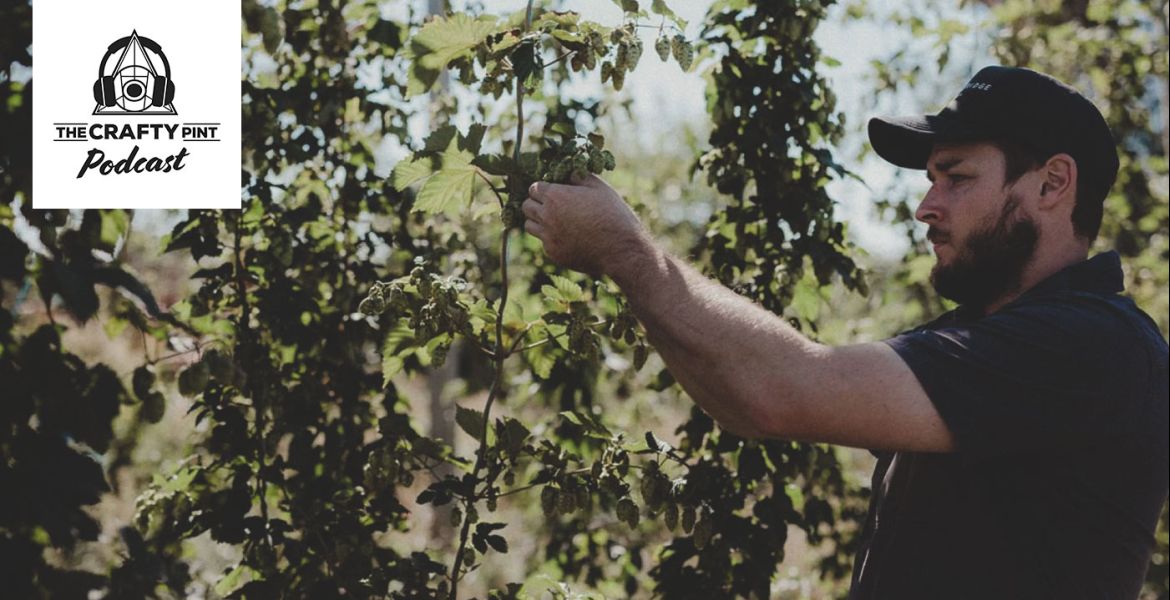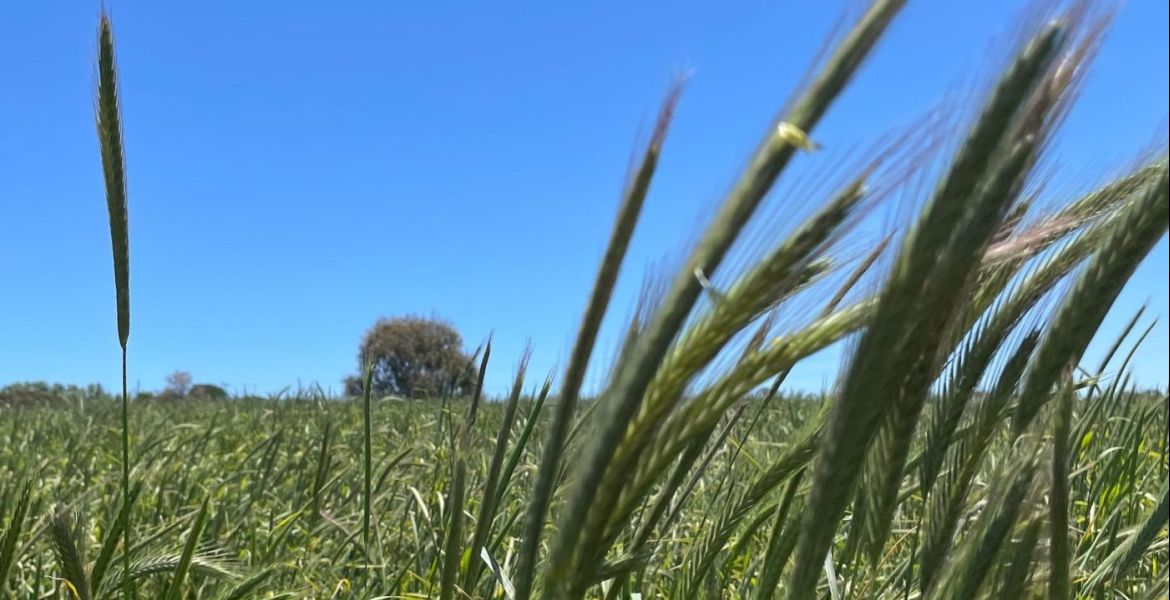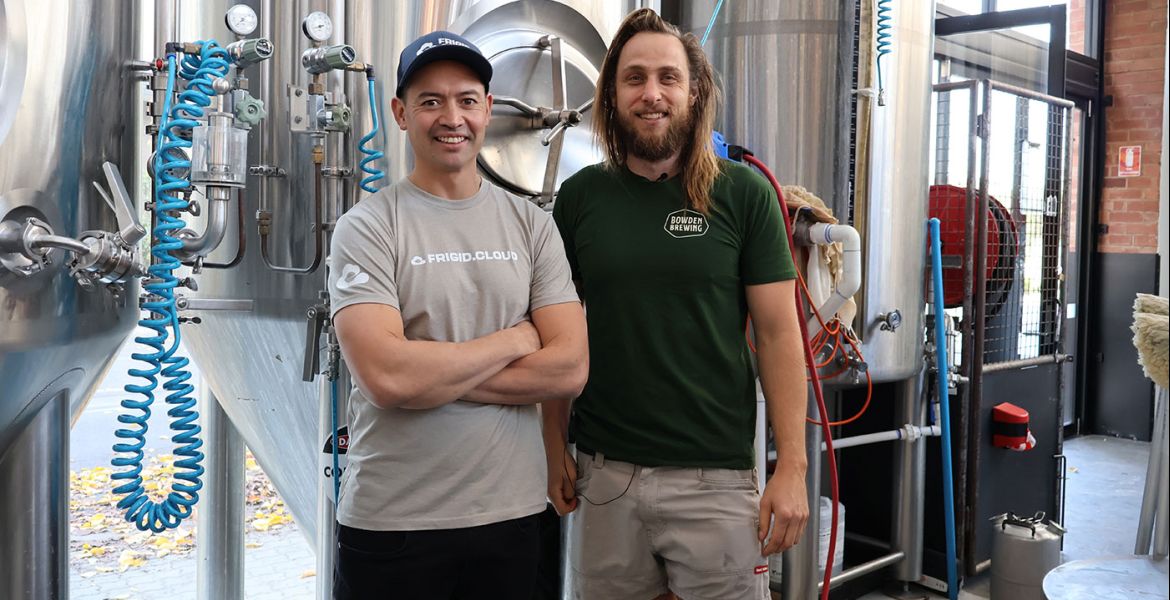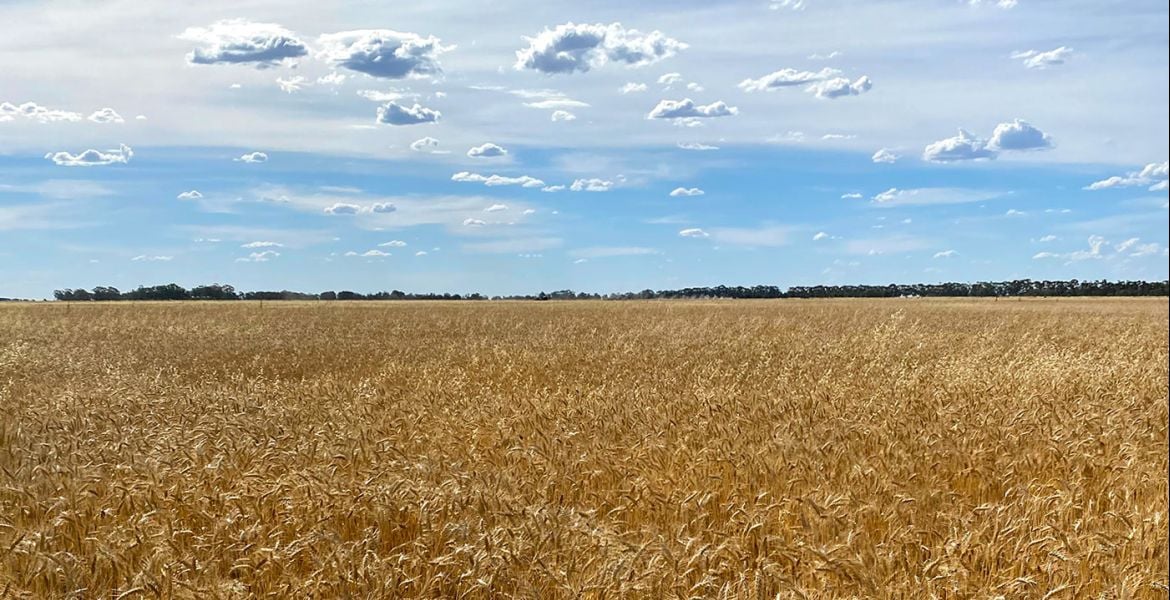If you want to solve a problem, it’s best to know exactly what you’re trying to fix.
As far as problems go, climate change is about as big as it gets and, in recent years, breweries have increasingly looked to mitigate their impact on the world.
Locally, the likes of Rocky Ridge, Capital and Bodriggy have become carbon neutral, but how do breweries, or any other businesses for that matter, calculate the impact of each beer they brew, or pint they pour?
Carbon accounting is a process used to calculate a greenhouse gas emissions, so breweries can understand where their emissions stem from and look to cut them where possible. If they can't, they tend to purchase carbon credits.
But Ben Richardson and George Wade, founders of Zevero, discovered a problem in carbon accounting itself and set out to solve it by launching a platform that specialises in carbon accounting and helps businesses decarbonise.
Since its early days, Zevero has worked hand in hand with breweries overseas and now they’re ready to do that in Australia. To help them on their mission, they’ve picked up one of craft beer’s greatest local advocates to support them.
We’ll get into who that is below but first: let’s talk about problems.
Time & The Problem With Emissions Data

George’s background is in waste reduction and Ben was working in carbon consulting when they found they were butting heads against the same problem in the sustainability space.
“We were both frustrated with the process of measuring emissions taking a long time,” George says.
At the time, he was working with a university in the UK and found that so much of the work was taken up in measuring that little was left over for action.
“If they had ten hours, they’d spend nine on measuring and one on action,” he says.
So, in 2021, they launched Zevero to automate measuring carbon in order to let businesses focus on decarbonising.
“That was really the goal,” George says. “Digitising that whole process and making it much easier, much more accurate, and much more accessible for companies to measure and reduce their impact.”
Anyone who’s ever spent a moment in a brewery knows there’s a lot of waste: chemicals are used to keep tanks clean; malt often comes in single-use bags and goes back out as spent grain (ideally to farmers); cans are filled to get beer into customers' hands – and that’s before you even start to consider the impact of shipping beer.
Telling Stories With Data & Zevero

Despite being in the carbon accounting business, George says he loves diving into data is it allows breweries to understand the impact they are having so they are able to make meaningful changes.
“Carbon accounting is about making the environmental impact of the products that you buy and sell on the planet visible,” he says.
“I’m not typically a numbers person, I’m a words person. I like stories to understand the bigger picture. However, measuring your emissions allows organisations to make their invisible impacts visible.”
Take the example of malt, which is a major source of greenhouse emissions from brewing, and which we’ve previously written about here and here. George points to how you can clearly see how much grain comes into and leaves a brewhouse but it’s much harder to visualise the impact those bags of malt have on the environment.
“If you're a brewery, you see all of the spent grain that you produce and the cans and the packaging that go out of the facility,” George says.
“But what you don’t realise is that it might not be the waste part of the grain that’s the problem; it’s the processing and the production of your malted barley.”
In the example of barley, where a switch from industrial farming to regenerative practices can slash emissions dramatically, those who can see the impact can better grasp what they can do to combat climate change.
“The most exciting thing,” George says, “is that it shows that actual change is possible and we can make a difference.
“As soon as you understand that things like malt and hops are a large source of emission for a brewery, then you start to realise that things like [regenerative farming] are so important as well.”
With Zevero, the team set out to build a platform that wouldn’t just streamline carbon accounting but tell better stories. George says a common issue with carbon accounting has been getting the right data in the right place; a brewery will know how many hops they’re buying and cans they’re using but pulling that data out for emissions purposes isn't always easy.
“So, for example, if you're a brewery in Australia, you might have your data in something like Abbl, SAP or Unleashed," he says. “What we do is build integrations to be able to connect that data from the systems. That makes measuring your emissions easier and more accurate.”
But getting the data is only part of the journey, particularly when accounting for the entire breadth of emissions, which are broken down into three scopes. You can read more about Scope 1, 2 and 3 here but, fundamentally, it’s about looking at the emissions a brewery might make, those it needs to operate (like electricity), and then everything else, such as the impact of producing malt.
Understanding each of those scopes is where Zevero’s platform comes in. George says knowing the impact of different ingredients is a process that’s generally very manual and time-consuming.
“If you’re a brewery in New South Wales,” he says, “and you’re buying hops from New Zealand, or a brewery in Melbourne that’s bought hops from somewhere else, how do we match them with the correct emissions factor?"
Fortunately, in the modern world, it can be made far less time-consuming thanks to two letters that are ubiquitous in 2024: AI.
“From our side, the way that AI is incorporated into the product is to make calculations more accurate and faster,” George says.
“So that if we have a million records that come in, we can go through a million records very quickly using technology, rather than having to pay consultants and analysts thousands of pounds to do that, and then ultimately have to do that for the customer as well.”
Working With Breweries

Although used by a range of industries, since their early days Zevero has worked closely with several breweries, including DEYA Brewing and Gipsy Hill in the UK. Helping close the loop is the fact they count the likes of Yakima Chief Hops and Charles Faram as customers too, which means Zevero has a deep understanding of the emissions related to those major hop growers.
As for breweries, we might not be handing out gold medals like at the Olympics but, when it comes to sustainability, the two in the UK have made impressive strides. Gipsy Hill managed to brew what they call the world’s first carbon negative beer that didn’t require them to offset any emissions, while DEYA’s cans detail the carbon footprint on each beer.
They’ve been able to get to that gold standard courtesy of Zevero, although George is quick to point out that change is a journey.
“If you're a brewery, you don't need to be perfect initially, just starting is the most important thing.”
Indeed, Zevero’s own footprint has grown significantly since those early days. Earlier this year, the business was acquired by the Singapore-based LEVELUP, giving them a larger presence throughout Asia, as well as the US and Europe.
“We started in the UK,” George says. “But the whole goal of what we want to do is to have a platform that can take on the global impact that is climate change.”
Zevero & Delmont Down Under

This brings us to Zevero’s Australian presence (and New Zealand for that matter) – their boots on the ground, Tom Delmont. As well as being indirectly responsible for The Crafty Pint by introducing founder James Smith to Australian craft beer, Tom’s long been an advocate for craft beer locally, first through his sales role at Mountain Goat and then as the force behind Fixation.
In recent weeks, Tom has finished up at the IPA-devoted brewery he co-founded, saying that he felt the time was right to leave the brewery.
“It was just the right time to say farewell to somewhere that had been my home for a long time," he says. "When you add in Mountain Goat, it’s 17 years selling beer and that’s a long run in anyone’s game.”
While he wasn't sure what his next step would be, Garry Hastings, with whom he worked closely with throughout their time at Fermentum, put his name forward to the Zevero team. Although Tom wasn't sure what he'd do next, he knew he wanted to do something he believed in, so when the chance to connect the industry he loves with climate action, it felt right.
Some in the industry might know that, before working in beer, Tom was an entomologist working to ensure bad bugs didn't make their way into Australia. Before that, he studied environmental management at university.
“I’ve always been a punk rocker," Tom says. "I like to think that the community around a brewery is a family unit and you want to try and improve the planet for the next generation.
“Craft breweries have always led the way with a lot of innovations and, if small and medium enterprises understand that climate change is something we need to address and take that lead, we can make change.”
For Tom, it's a different, if not entirely removed role from his long history of selling craft beer to bars and bottleshops.
“It’s a hawk-eye view of the industry, but there’s still a lot of talking to those friends and building those relationships," Tom says.
And, while he might be signing up at a time when many craft breweries are struggling, Tom thinks it's important for breweries to understand their impact, and to acknowledge that younger consumers expect businesses to act responsibly.
“It’s becoming mainstream and it is what the next generation wants to see in their beer: they’re searching for brands that have a sustainability focus,” he says.
“In our industry, we need to be talking about all aspects of the industry, not just the liquid.”
Indeed, as a beer drinker himself, Tom says he had already seen the impact of Zevero's work, well before he knew what the carbon accounting platform was: while on a work trip earlier in the year, someone handed him a beer from a brewery that was cutting through with local drinkers.
“I was sitting in a pub in London in April, with someone from the Stone & Wood team over there," he says. "They handed me a can of beer and it was DEYA Brewing Into The Haze.
"I took a photo of every side of the label because they had a QR code linking to their sustainability information that comes from Zevero. I'd never heard of it, but I had to get a photo because they had the per-litre emissions for that beer on the back of the can.”
Australian breweries eager to start on their sustainability journey can check out this handy checklist from Zevero. Or reach out to Tommy Delmont.





